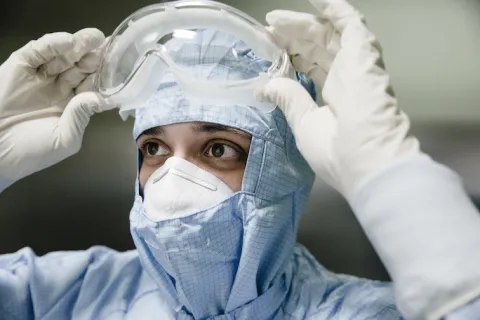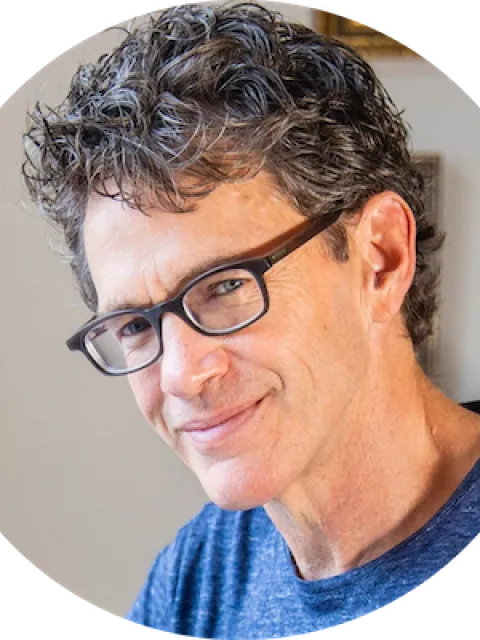Beyond the headlines lie unsung heroes

Bill Anderson of Roche Pharmaceuticals shines a light on the herculean efforts of unsung heroes to ensure the continued availability of essential medicines and care through the pandemic.
2020 well and truly put healthcare in the spotlight. For me, it's been a valuable reminder of why we're in the industry we're in, and why we contribute to society in the way we do. While the headlines have been about a villain called COVID-19, there has been an undercurrent of energy and an often unheralded commitment by those working with urgency, passion and purpose – the everyday heroes who ensure people with cancer continue to get the care they need.
In the early days of the pandemic, global transportation channels and capacity disappeared overnight. Literally, one day we were shipping medicines as normal, the next day flights were cancelled and country borders were closed. Transportation and logistics teams faced down enormous complexity and found new approaches – at the speed of ‘life’ – to keep things moving across the globe. One day, the only plane in the Algerian sky was a charter flight we scheduled to transport cancer medicines to Morocco and Algeria. Public hospital stock was at an all-time low. Similarly, when Myanmar was under lockdown and not accessible by commercial flights or road, shipments from Switzerland on a flight to Asia were consolidated in transit with shipments from Singapore, and were delivered together after receiving special landing rights in Yangon. These are just two examples – it was happening all over the world!
The challenge was not just getting cancer medicines or diagnostics to patients, but continuing to make them. There were shortages of critical supplies and components. Procurement and manufacturing colleagues dealt with challenges getting raw materials from suppliers around the world, due to limited availability, or again, logistical hurdles.
Social distancing and safety measures in place at our sites ensure the wellbeing of our essential workers who manufacture and distribute our medicines, but add another layer of effort – on top of their challenges at home: caring for loved ones, home-schooling and navigating community restrictions. And in the case of colleagues in California, they had the hardship of raging wildfires, homes at risk and poor air quality within a few miles of our site. Yet, they still showed up to deliver for patients. Every day, month after month.
Beyond teams “on the ground” in warehouses, logistics, manufacturing and transport, others were virtual superheroes who supported cancer care remotely. In many cases, cancer diagnoses have fallen during the pandemic, with stay-at-home orders preventing people presenting for diagnosis. Those with cancer are already at risk, and people have been reluctant to leave their homes or travel in crowded public areas to see doctors. But this can have devastating long-term consequences.
Infrastructure in Uruguay broke down during the pandemic, forcing patients to wait several hours for overpacked public transportation. Responding quickly, my colleagues arranged rides to hospitals for cancer patients to receive treatment. In the Philippines, alternative treatment sites were set up so immunocompromised patients could receive care outside a hospital setting, or even at home. Many patients in the capital city of Manila rely on public transport; disruption impacted more than 75% of patients enrolled in an access program. Again, my colleagues arranged for free transportation to ensure continuity of care.
In many cases across the industry, clinical trials were halted. We took the decision to continue running ours, working to avoid delays for patients and continue accelerating scientific advances needed to overcome cancer. In one instance, we launched a decentralised trial that not only allowed patients to participate without leaving their homes, but also meant the study team could speed up recruitment for a rare patient population. It's a great example of turning adversity into an opportunity to improve the patient experience – in this case offering at-home treatment by a mobile nurse who talks by phone with the clinical trial investigator during the visit.
Through it all, the most rewarding thing I have witnessed is the way people responded, and continue to respond, to adversity, and delivered for patients. Unsung heroes, just doing what needs to be done to make it happen, with new mindsets, extreme speed, streamlined decision-making, empowered people, innovative ideas, increased collaboration and great partnerships. In the end, it is the diligence of our people – and those in science and healthcare across the globe – who make the difference. We must not end this pandemic experience just with exhaustion and relief that it's over, but with a relentless focus and continued commitment to keep doing whatever it takes to overcome cancer. And with deep gratitude to the people who are doing it!
Last update
Tuesday 01 March 2022Share this page
